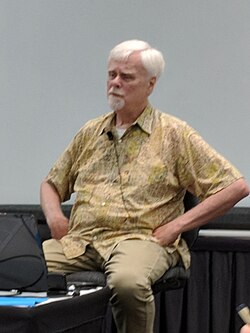David D. Burns Quote
The increased risk for bipolar illness among identical twins is even true if the identical twins are separated at birth and raised by different families. Although the adoption of identical twins by separate families is rare, it does happen on occasion. In some cases, scientists have been able to locate the twins later in life to determine how similar or different they are. These natural experiments can tell us a great deal about the relative importance of genes versus environment because the separately raised identical twins have identical genes but their environments are different. Such studies highlight the importance of strong genetic influences in bipolar disorder.
The increased risk for bipolar illness among identical twins is even true if the identical twins are separated at birth and raised by different families. Although the adoption of identical twins by separate families is rare, it does happen on occasion. In some cases, scientists have been able to locate the twins later in life to determine how similar or different they are. These natural experiments can tell us a great deal about the relative importance of genes versus environment because the separately raised identical twins have identical genes but their environments are different. Such studies highlight the importance of strong genetic influences in bipolar disorder.
Related Quotes
About David D. Burns
Burns popularized Albert Ellis's and Aaron T. Beck's cognitive behavioral therapy (CBT) when his books became bestsellers during the 1980s. In a January 2021 interview, Burns attributed his rise in popularity and much of his success to an appearance in 1988 on The Phil Donahue Show, to which he was invited by the producer after helping her teenage son with depression.
